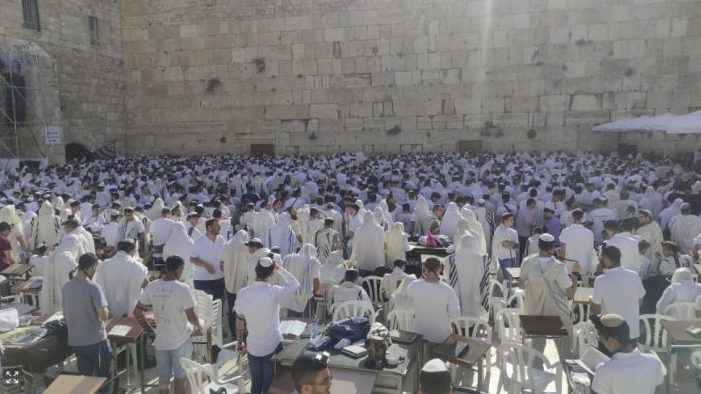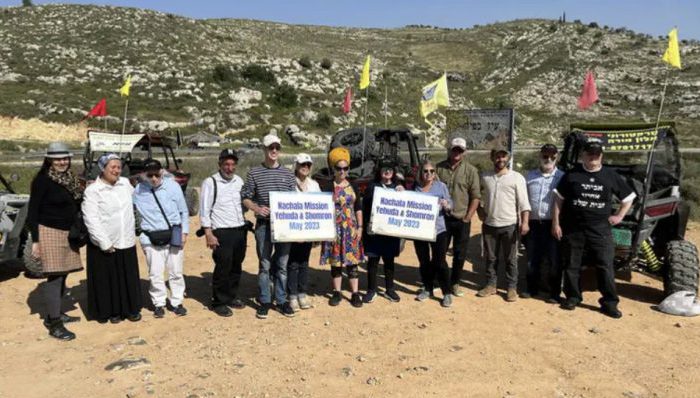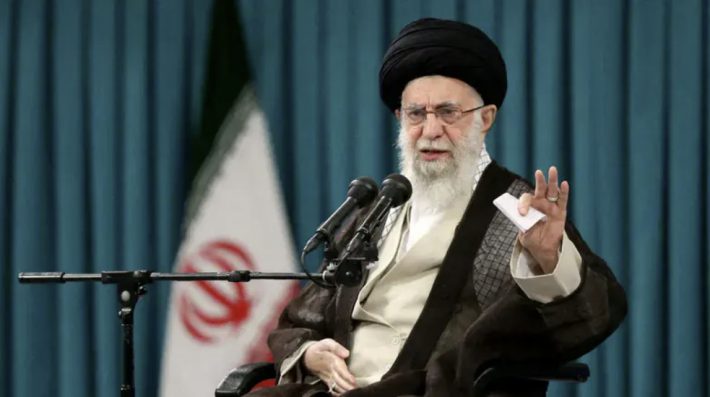The Enduring Legacy of Israel’s Distinctiveness.
In our Parasha, Balak (Bamidbar 23:7–9), the Torah recounts Balaam’s remarkable and involuntary praise of Bnei Yisrael:
“From Aram, Balak led me… ‘Come curse Yaakov for me’… How can I curse?—God has not cursed. How can I anger?—Hashem is not angry. For from its origins I see them as mountain peaks, and from hills I behold them. Behold! It is a people that dwells alone and is not reckoned among the nations.”
Rashi’s Insight: A Legacy of Strength and Separation
Rashi, in his commentary, explains Balaam’s words:
“From its origins, I see them as mountain peaks” – their beginnings, rooted in their holy Avot and Imahot, established them with power and endurance, like unshakable mountains and hills.
“A nation that dwells alone” – This is the inheritance of their ancestors: to dwell in separateness, not blending into the nations of the world.
The Dubner Maggid & Bina L’Itim: Purity Through Lineage
The Dubner Maggid highlights that the purity of lineage is foundational to this separateness—“no foreign seed mingled among them.” Balaam saw that even generations later, Israel continued in the spiritual path paved by their forebears.
The Bina L’Itim underscores the unparalleled sanctity of the Avot and Imahot. Though Ishmael and Esav descended from Avraham and Yitzchak, they lacked the holiness of Sarah, Rivkah, Rachel, and Leah—matriarchs whose sanctity uniquely shaped Bnei Yisrael.
Abarbanel & Netziv: Beyond Genealogy—A Unique National Spirit
Abarbanel interprets the imagery of “mountain peaks and hills” as metaphors for the patriarchs and matriarchs—indicating an unbroken, pure lineage. Bnei Yisrael is thus unlike other nations, formed through amalgamation; they are one organic nation, distinct in essence.
The Netziv adds that Balaam likened Israel to rock-like mountains—emblematic of their unshakable faith. Even in exile, unlike other nations who assimilate, Israel “dwells alone” with visible dignity, marked by Hashem’s presence.
Chazal and the Bet HaLevi: Attempts to Blend Only Deepen Isolation
Sanhedrin 104b comments on the verse in Vezot HaBracha (33:28): “And Israel dwelled securely and alone…” stating that Hashem wanted Israel to remain separate. When they attempted to imitate the Egyptians, abandoning practices like circumcision, Hashem turned the Egyptians against them, emphasizing that true security lies in separateness, not assimilation.
The Bet HaLevi notes that Israel’s unique “form”—their spiritual essence—is incompatible with that of other nations. Assimilation brings not acceptance, but rejection. As Hoshea (8:8) warns: “They are like a vessel that no one desires.”
Rav Meir Robman and the Rambam: A Sociological Wonder
Rav Meir Robman, citing the Yalkut Lekach Tov, marvels at Balaam’s recognition of Israel’s cultural resilience. The Rambam teaches that human behavior is shaped by society and surroundings. Yet Balaam saw that despite being a small minority, Israel maintained distinct practices, dress, and diet—proof of a spiritual strength rooted in their Avot.
Balaam’s wonderment leads to revelation: their uniqueness stems “from its origins… from hills”—from Avraham, Yitzchak, Yaakov, and the holy Imahot, whose spiritual DNA sustains Israel through the ages.
Avraham Ha’Ivri: The Power of Singular Faith
Avraham is called “Ha’Ivri”—the one “on the other side.” Our Sages explain: the entire world stood on one side, and he on the other. He stood alone against idolatry, teaching the world of the One Creator. This legacy of steadfast faith, standing apart from societal tides, became the eternal mission of Bnei Yisrael.
Ramban & Rav Yosef Chaim Shneur Kotler: The Gift of Torah Solidifies Separation
The Ramban and Rav Kotler stress that Israel’s distinctiveness is not only innate but is actualized through receiving the Torah. As we say in Brachot: “Who chose us from among the nations and gave us His Torah.” With one law and one path, they stand alone, united under the banner of Yaakov.
Targum Yonatan ben Uziel reinforces: “This people do not behave like other nations.” Their separation is encoded in mitzvot and daily living. As Vayikra 20:24 teaches: “I am Hashem your God, who has distinguished you from the nations.”
Sanctifying the Mundane: A Spiritual Elevation Unmatched
Rashi, on Balaam’s line “Who can count the dust of Yaakov?”, interprets that even actions involving dust—like agricultural prohibitions—become mitzvot. Rav Kotler notes that in Israel, every deed can be a sacred act. This is foreign to Balaam and others, whose moral frameworks cannot comprehend the sanctification of the mundane.
This is why, say Chazal, Balaam was “blind in one eye”—spiritually blind to the idea that holiness can permeate even the most physical aspects of life.
Rav Eliyahu Schlezinger: Historical Proof of Jewish Integrity
Rav Schlezinger observes that in every exile—amid foreign cultures and dominant religions—Israel retained its language, names, and customs. Even Balaam, a sworn enemy, had to acknowledge this supernatural consistency, forced by Hashem to bless what he wished to curse.
Rav Gedalia Schorr: The Inheritance of Yaakov’s Solitude
Balaam’s words echo the level of Yaakov, described as “levado”—alone, cleaving to Hashem. So too, his descendants, inheriting his singular focus, dwell “levadad”—alone. In this lies their strength: as long as they remain apart, they remain betach—secure.
To preserve this, our Sages instituted protective decrees—such as avoiding non-Jewish wine—to prevent assimilation. And when the people faltered in maintaining their separateness, Hashem intervened through external pressures, as seen in Egypt.
Conclusion: To Be “Alone” Is to Be Elevated
From Balaam’s awe to the profound interpretations of Rishonim and Acharonim, one theme resounds: Israel is not like other nations. Their roots, conduct, and spiritual mission set them apart.
The Parasha teaches us not merely about Balaam’s failed curse but about the eternal truth that “Am levadad yishkon”—Israel dwells alone—not in isolation, but in divine purpose. This is not a call for superiority, but for responsibility: to be a light among the nations, not lost among them.
Let us, then, reaffirm our commitment to this sacred identity, to sanctify even the simplest actions, and to stand strong—levado—as did Avraham, Yaakov, and every Jew who bore their legacy forward.In our Parasha, Balak (Bamidbar 23:7–9), the Torah recounts Balaam’s remarkable and involuntary praise of Bnei Yisrael:
“From Aram, Balak led me… ‘Come curse Yaakov for me’… How can I curse?—God has not cursed. How can I anger?—Hashem is not angry. For from its origins I see them as mountain peaks, and from hills I behold them. Behold! It is a people that dwells alone and is not reckoned among the nations.”
Rashi’s Insight: A Legacy of Strength and Separation
Rashi, in his commentary, explains Balaam’s words:
“From its origins, I see them as mountain peaks” – their beginnings, rooted in their holy Avot and Imahot, established them with power and endurance, like unshakable mountains and hills.
“A nation that dwells alone” – This is the inheritance of their ancestors: to dwell in separateness, not blending into the nations of the world.
The Dubner Maggid & Bina L’Itim: Purity Through Lineage
The Dubner Maggid highlights that the purity of lineage is foundational to this separateness—“no foreign seed mingled among them.” Balaam saw that even generations later, Israel continued in the spiritual path paved by their forebears.
The Bina L’Itim underscores the unparalleled sanctity of the Avot and Imahot. Though Ishmael and Esav descended from Avraham and Yitzchak, they lacked the holiness of Sarah, Rivkah, Rachel, and Leah—matriarchs whose sanctity uniquely shaped Bnei Yisrael.
Abarbanel & Netziv: Beyond Genealogy—A Unique National Spirit
Abarbanel interprets the imagery of “mountain peaks and hills” as metaphors for the patriarchs and matriarchs—indicating an unbroken, pure lineage. Bnei Yisrael is thus unlike other nations, formed through amalgamation; they are one organic nation, distinct in essence.
The Netziv adds that Balaam likened Israel to rock-like mountains—emblematic of their unshakable faith. Even in exile, unlike other nations who assimilate, Israel “dwells alone” with visible dignity, marked by Hashem’s presence.
Chazal and the Bet HaLevi: Attempts to Blend Only Deepen Isolation
Sanhedrin 104b comments on the verse in Vezot HaBracha (33:28): “And Israel dwelled securely and alone…” stating that Hashem wanted Israel to remain separate. When they attempted to imitate the Egyptians, abandoning practices like circumcision, Hashem turned the Egyptians against them, emphasizing that true security lies in separateness, not assimilation.
The Bet HaLevi notes that Israel’s unique “form”—their spiritual essence—is incompatible with that of other nations. Assimilation brings not acceptance, but rejection. As Hoshea (8:8) warns: “They are like a vessel that no one desires.”
Rav Meir Robman and the Rambam: A Sociological Wonder
Rav Meir Robman, citing the Yalkut Lekach Tov, marvels at Balaam’s recognition of Israel’s cultural resilience. The Rambam teaches that human behavior is shaped by society and surroundings. Yet Balaam saw that despite being a small minority, Israel maintained distinct practices, dress, and diet—proof of a spiritual strength rooted in their Avot.
Balaam’s wonderment leads to revelation: their uniqueness stems “from its origins… from hills”—from Avraham, Yitzchak, Yaakov, and the holy Imahot, whose spiritual DNA sustains Israel through the ages.
Avraham Ha’Ivri: The Power of Singular Faith
Avraham is called “Ha’Ivri”—the one “on the other side.” Our Sages explain: the entire world stood on one side, and he on the other. He stood alone against idolatry, teaching the world of the One Creator. This legacy of steadfast faith, standing apart from societal tides, became the eternal mission of Bnei Yisrael.
Ramban & Rav Yosef Chaim Shneur Kotler: The Gift of Torah Solidifies Separation
The Ramban and Rav Kotler stress that Israel’s distinctiveness is not only innate but is actualized through receiving the Torah. As we say in Brachot: “Who chose us from among the nations and gave us His Torah.” With one law and one path, they stand alone, united under the banner of Yaakov.
Targum Yonatan ben Uziel reinforces: “This people do not behave like other nations.” Their separation is encoded in mitzvot and daily living. As Vayikra 20:24 teaches: “I am Hashem your God, who has distinguished you from the nations.”
Sanctifying the Mundane: A Spiritual Elevation Unmatched
Rashi, on Balaam’s line “Who can count the dust of Yaakov?”, interprets that even actions involving dust—like agricultural prohibitions—become mitzvot. Rav Kotler notes that in Israel, every deed can be a sacred act. This is foreign to Balaam and others, whose moral frameworks cannot comprehend the sanctification of the mundane.
This is why, say Chazal, Balaam was “blind in one eye”—spiritually blind to the idea that holiness can permeate even the most physical aspects of life.
Rav Eliyahu Schlezinger: Historical Proof of Jewish Integrity
Rav Schlezinger observes that in every exile—amid foreign cultures and dominant religions—Israel retained its language, names, and customs. Even Balaam, a sworn enemy, had to acknowledge this supernatural consistency, forced by Hashem to bless what he wished to curse.
Rav Gedalia Schorr: The Inheritance of Yaakov’s Solitude
Balaam’s words echo the level of Yaakov, described as “levado”—alone, cleaving to Hashem. So too, his descendants, inheriting his singular focus, dwell “levadad”—alone. In this lies their strength: as long as they remain apart, they remain betach—secure.
To preserve this, our Sages instituted protective decrees—such as avoiding non-Jewish wine—to prevent assimilation. And when the people faltered in maintaining their separateness, Hashem intervened through external pressures, as seen in Egypt.
Conclusion: To Be “Alone” Is to Be Elevated
From Balaam’s awe to the profound interpretations of Rishonim and Acharonim, one theme resounds: Israel is not like other nations. Their roots, conduct, and spiritual mission set them apart.
The Parasha teaches us not merely about Balaam’s failed curse but about the eternal truth that “Am levadad yishkon”—Israel dwells alone—not in isolation, but in divine purpose. This is not a call for superiority, but for responsibility: to be a light among the nations, not lost among them.
Let us, then, reaffirm our commitment to this sacred identity, to sanctify even the simplest actions, and to stand strong—levado—as did Avraham, Yaakov, and every Jew who bore their legacy forward.
לרפואת נועם עליזה בת זהבה רבקה ונחום אלימלך רפאל בן זהבה רבקה, בתוך שאר חולי עמנו.





